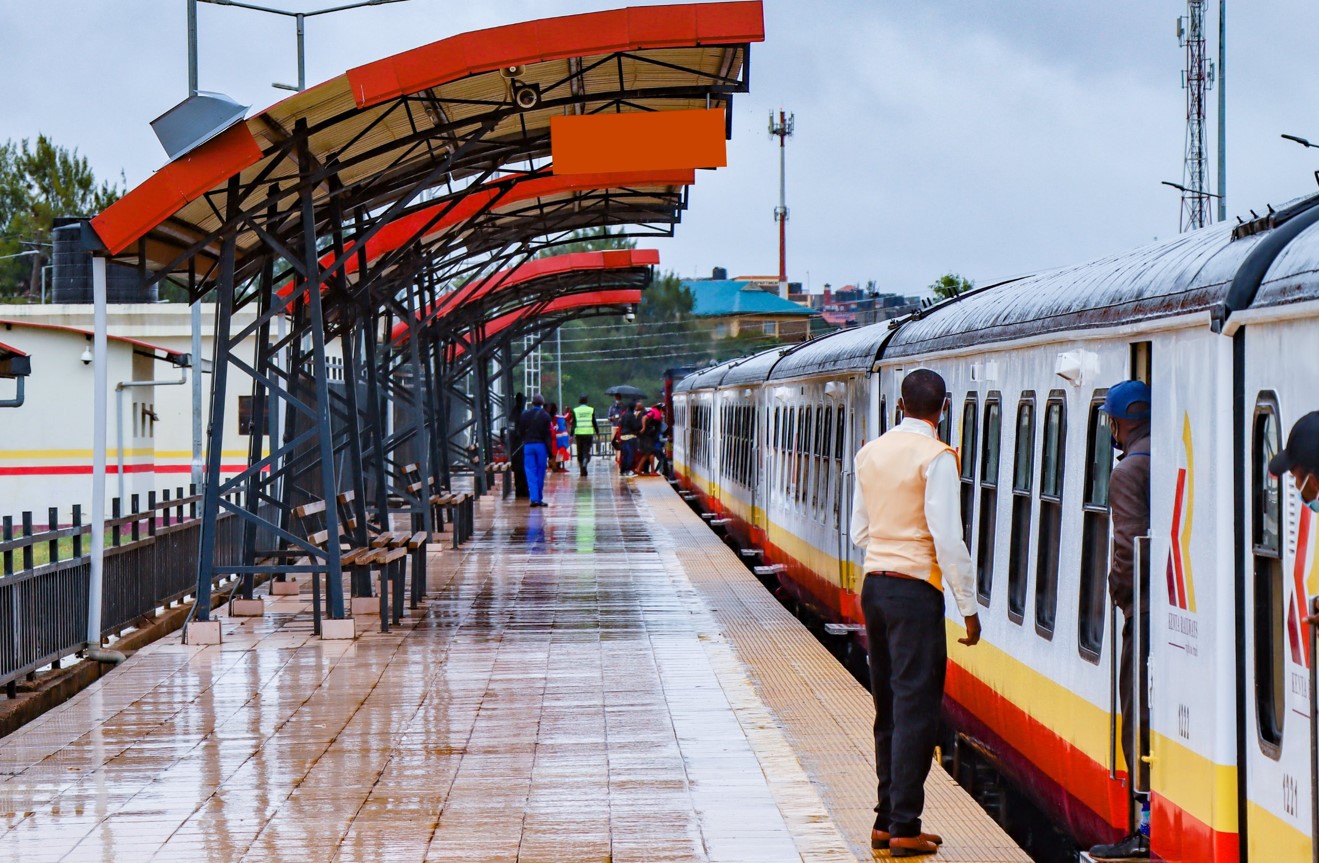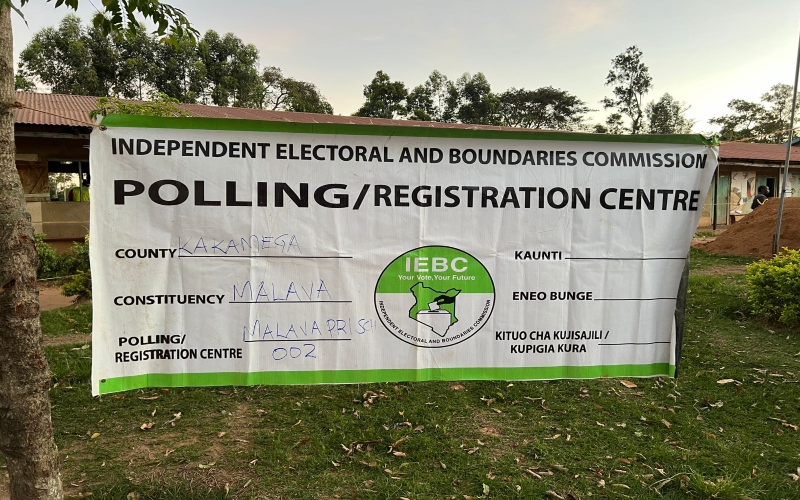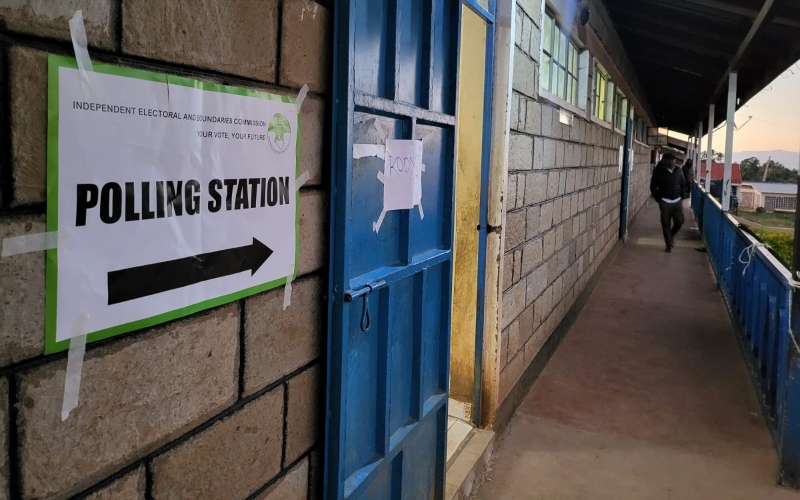Kenya Railways losing millions as ticketing flaws let passengers ride free, Auditor General reveals

Auditor General Nancy Gathungu said the corporation had not put in place effective measures to ensure full revenue collection on its commuter service trains and meter gauge services, exposing the system to manipulation and loss.
Kenya Railways is losing millions in potential revenue due to weak internal controls in its ticketing and revenue collection systems, with the Auditor General highlighting serious flaws that allow some passengers to travel without paying.
In her report for the financial year ending June 2024, Auditor General Nancy Gathungu said the corporation had not put in place effective measures to ensure full revenue collection on its commuter service trains and meter gauge services, exposing the system to manipulation and loss.
More To Read
- Audit flags leadership vacuum at Garissa University since 2022
- Auditor General calls for penalties on officers who ignore audit recommendations
- Auditor General Nancy Gathungu warns of pension losses as government delays remittances
- Revenue gaps, budget misalignments hurting service delivery, warns Auditor General
- Governance Committee orders mandatory audit attendance for university heads
- Kenya Railways banks on property sales to settle Sh2.26 billion pension debt
The report revealed that despite the presence of revenue inspectors, most commuter trains are usually overcrowded, making it hard for the inspectors to confirm that every passenger has a valid ticket. As a result, some passengers board the trains without paying, leading to a loss of revenue.
It was also noted that receipts were being dropped into an open tray at the station exits. The Auditor raised concerns that these receipts were not destroyed or safeguarded, making it easy for them to be reused later, either in the evening or the next day.
“In the circumstances, the effectiveness of internal controls on revenue collections in the commuter service trains could not be confirmed,” the report read. “Internal controls on the handling of the issued receipts at the main railway station exit were noted to be weak.”
The audit further revealed that mobile money payments were not properly coordinated. Cashiers were observed to prioritise those paying in cash over customers using M-Pesa, causing delays and increasing the chances of revenue leakage.
According to the report, the nature of the train service, where passengers board and alight at various stops, made it possible for mobile money users to disembark before being issued a receipt.
In what the Auditor described as a risky practice, passengers using mobile payment would simply show the M-Pesa confirmation message to the cashier, who would then ask them to read the reference number aloud. The report warned that this system is vulnerable to fraud.
“Considering that there are instances where dishonest people tamper with MPESA messages, the chances of the cashier recording doctored messages could not be ruled out. The cashiers who gave out tickets were the very same people who walked around to check the tickets. Lack of segregation of duties can easily lead to collusion and loss of cash. Mostly, the inspectors/supervisors are not on the train to check the tickets,” the Auditor warned.
At the same time, Kenya Railways is under renewed scrutiny over its failure to repay a Sh46 billion loan it borrowed from China Exim Bank, which has so far attracted Sh34.1 billion in penalties and interest due to delayed payments.
“Failure to meet obligations when due has attracted avoidable expenditure of Sh34,166,273,919 in the form of penalties amounting to Sh5,309,944,132 and interests amounting to Sh28,856,329,787, which could have otherwise been avoided,” Gathungu stated.
She termed the penalties as unnecessary public losses that would not have occurred if the payments had been made on time. The Auditor further warned that the Ksh5.3 billion in outstanding penalties had exposed public funds to unjustified spending.
“These penalties expose the public to avoidable expenditures that could otherwise have been avoided. This expenditure is not a proper charge to public funds,” the report went on to observe.
In addition, the report revealed that Kenya Railways is facing contingent liabilities in the form of lawsuits worth Sh27.97 billion and government-backed guarantees worth Sh166.8 million. Gathungu cautioned that these unresolved liabilities pose a major threat to the corporation’s operations.
“As reported in the previous year, the balance comprises lawsuits against the Corporation yet to be determined, estimated at Sh27,978,266,389 and guarantees given on behalf of the Corporation amounting to Sh166,832,810. I draw your attention to the fact that the Corporation is at risk of operations interruption should the contingent liabilities crystallise,” she said.
The Auditor also questioned the management of prepayments made by Kenya Railways to various service providers and government agencies. These include Kenya Power, Nairobi City Government, National Youth Service, and the Kenya Railways Staff Retirement Benefit Scheme.
According to the report, prepayments amounting to Ksh1 billion have remained outstanding for more than a year, with no explanation offered for why they were not prioritised in the following year’s budget.
“No satisfactory explanation was given why the amount did not form the first charge in the succeeding year,” the Auditor noted.
Top Stories Today












































